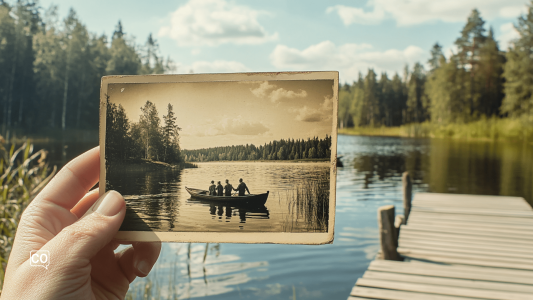Mezclando el pasado

Learning goals:
- Situation: Narra historias del pasado (Narrate stories from the past)
- Situation: Hablar sobre el pasado (Talk about the past )
- Verb: Traer (to bring) - Pretérito indefinido, indicativo (Simple past, indicative)
- Verb: Traer (to bring) - Pretérito imperfecto, indicativo (Imperfect Past, indicative)
- Verb: Andar (to walk) - Pretérito indefinido, indicativo (Simple past, indicative)
- Verb: Andar (to walk) - Pretérito imperfecto, indicativo (Imperfect Past, indicative)
- Verb: Venir (to come) - Pretérito indefinido, indicativo (Simple past, indicative)
- Verb: Venir (to come) - Pretérito imperfecto, indicativo (Imperfect Past, indicative)
- Grammar: ¿El pretérito imperfecto o el pretérito indefinido? (The imperfect tense or the preterite tense?)
- Culture: "Dolor y Gloria": Redescubriendo el Pasado ("Pain and Glory": Rediscovering the Past)
Learning module 3 (A2): El buen pasado (The good old past)
Teaching guidelines +/- 60 minutes
Exercises
These exercises can be done together during conversation lessons or as homework.
Exercise 1: Find the words
Instruction: Find the words, mark them and make sentences with the words.
Show answers Show hintsHints
To walk , Before , To appear , To disappear , To come , All of a sudden
Answers
Score: 0/6
| Antes | (Before) |
| Andar | (To walk) |
| De repente | (All of a sudden) |
| Aparecer | (To appear) |
| Desaparecer | (To disappear) |
| Venir | (To come) |
Exercise 2: Reorder sentences
Instruction: The words in these sentences have been shuffled! Sort them so that they make a valid sentence again and translate.
Show answers Show translationExercise 3: Translate and use in a sentence
Instruction: Translate and say the word out loud. Use the word in a sentence.
Show translation|
1.
De repente
|
(All of a sudden) |
|
2.
Desaparecer
|
(To disappear) |
|
3.
Venir
|
(To come) |
|
4.
Al principio
|
(At first) |
|
5.
Después
|
(Afterwards) |
|
6.
El cuento
|
(The story) |
|
7.
La historia
|
(The history) |
|
8.
El personaje
|
(The character) |
Exercise 4: Translate and make sentences
Instruction: Translate the words and phrases below and use it in a conversation or text.
Show answersExercise 5: Conjugación verbal
Instruction: Choose the correct word, read the sentence out loud and translate.
Show answers Show translationAndar (Pretérito indefinido, indicativo), Venir (Pretérito indefinido, indicativo), Venir (Pretérito imperfecto, indicativo), Traer (Pretérito indefinido, indicativo), Traer (Pretérito imperfecto, indicativo), Andar (Pretérito imperfecto, indicativo)
1. Vosotros ... a la montaña y respirabais aire fresco.
2. Vosotros ... la ropa interior para la semana.
3. Él ... al campo a alimentar las ovejas.
4. Vosotros ... al río y pescasteis un rato.
5. Yo ... por el bosque y descubrí un hermoso roble.
6. En verano yo ... a la playa y me divertía.
7. Tú ... las gafas de sol para ir a la excursión.
8. Tú ... las llaves al hacer el check in.
Exercise 6: The imperfect tense or the preterite tense?
Instruction: Choose the correct word, read the sentence out loud and translate.
Show answers Show translationsoñaba, habló, leía, soñaste, nos divertimos, escuchaban, jugasteis, jugábamos, andaba, se divertían
1. Jugar (vosotros): Al final, ...en casa.
2. Escuchar (ellos): Al principio, la historia era muy interesante y todos ... con atención.
3. Soñar (yo): Cuando era niño, siempre ... con ser un gran hombre.
4. Divertirse (nosotros): El año pasado, fui al cine con mis amigos y ... mucho.
5. Soñar (tú): Ayer ... con visitar a tu amigo después de mucho tiempo.
6. Andar (él): Antes, el personaje siempre ... por el bosque.
7. Hablar (ella): La semana pasada la profesora ... conmigo sobre de las diferencias entre los dos personajes.
8. Divertirse (ellos): En la época de los años 80, las personas a menudo ... en las fiestas con una buena música.
9. Leer (yo): Mientras yo ... el cuento, mi hermana vino a preguntarme sobre los personajes.
10. Jugar (nosotros): Cada verano, ... en el parque hasta la noche.
Exercise 7: Translate and make sentences
Instruction: Translate the words and phrases below and use it in a conversation or text.
Show answers